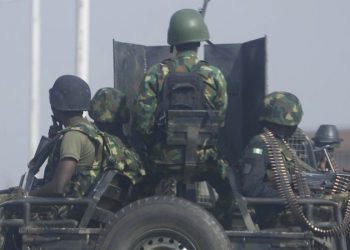The ongoing Sudan Crisis continues to escalate, creating a dire humanitarian situation compounded by recent political developments. Months of intense conflict between the Sudanese army and the paramilitary Rapid Support Forces (RSF) have displaced millions, leaving a trail of destruction and a population teetering on the brink of famine. Understanding the complexities of the Sudan Crisis requires examining both the immediate humanitarian catastrophe and the shifting political landscape.
The Devastating Humanitarian Impact of the Sudan Crisis
The human cost of the Sudan Crisis is staggering. According to recent reports from organizations like the United Nations, the number of internally displaced persons (IDPs) and refugees fleeing to neighboring countries continues to rise exponentially. Access to essential resources like food, water, and healthcare has been severely disrupted, particularly in areas heavily affected by the fighting, such as Khartoum, Darfur, and Kordofan. The humanitarian crisis in Sudan is further exacerbated by the breakdown of infrastructure and the targeting of civilian populations.
Surging Maternal Deaths and Health Crisis
A particularly alarming aspect of the Sudan Crisis is the dramatic increase in maternal deaths. The collapse of the healthcare system, coupled with limited access to medical supplies and personnel, has made childbirth incredibly dangerous for pregnant people. Reports indicate that maternal mortality rates have soared in conflict-affected regions, highlighting the urgent need for safe delivery services and reproductive healthcare within the ongoing crisis. Furthermore, outbreaks of diseases like cholera and measles pose significant threats to the already vulnerable population.
Food Insecurity and the Risk of Famine
The Sudan conflict has had a devastating impact on agricultural production and food supply chains. Displacement of farmers, destruction of crops and livestock, and disruptions to transportation routes have led to widespread food insecurity. Warnings of an impending famine are growing louder, with millions facing acute hunger. Addressing the food crisis in Sudan requires immediate and sustained humanitarian aid, including food distribution and support for agricultural recovery.
Political Developments Amidst the Sudan Crisis
In the midst of the humanitarian catastrophe, Sudan has also witnessed significant political shifts. Recently, the army chief, General Abdel Fattah al-Burhan, appointed a new civilian prime minister, a move that has been met with cautious optimism and skepticism. This development comes after months of deadlock and failed attempts at negotiation between the warring factions.
Appointment of a Civilian Prime Minister
The appointment of a civilian prime minister is seen by some as a potential step towards a political resolution of the Sudan Crisis. However, questions remain about the extent of the prime minister’s authority and the commitment of the military and the RSF to a genuine transition to civilian rule. The ongoing violence and deep-seated mistrust between the parties present significant obstacles to any lasting political settlement.
Challenges to a Lasting Political Solution
Achieving a sustainable peace in Sudan requires addressing the root causes of the conflict, including long-standing grievances, power struggles, and regional dynamics. International efforts to mediate between the warring factions and facilitate a ceasefire have so far yielded limited results. The political crisis in Sudan is deeply intertwined with the humanitarian emergency, and progress in one area is crucial for alleviating suffering in the other.
The Urgent Need for International Action
The crisis in Sudan demands a coordinated and comprehensive international response. This includes increased humanitarian aid to address the urgent needs of the affected population, diplomatic pressure on the warring parties to end the violence and engage in meaningful negotiations, and accountability for human rights violations. The international community must not ignore the suffering of the Sudanese people and must work towards a peaceful and just resolution to this devastating African crisis.
The situation in Sudan remains fluid and highly volatile. Continued monitoring of both the humanitarian and political dimensions of the Sudan Crisis is essential to provide effective assistance and support efforts towards a lasting peace. The resilience of the Sudanese people in the face of unimaginable hardship is remarkable, but they cannot overcome this crisis alone.
Other News:












